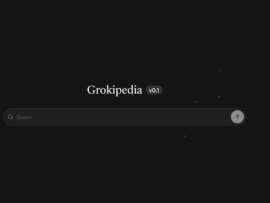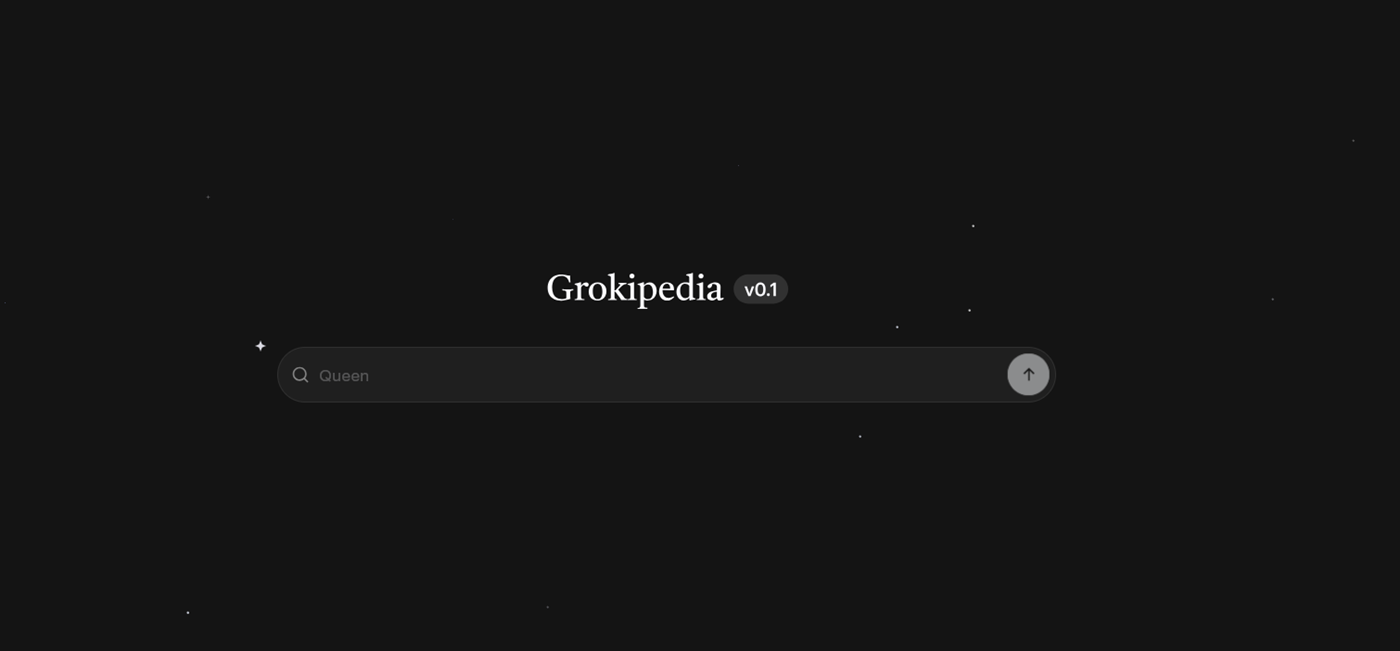
He hasn’t been in the news for about five minutes, so now is a good time to talk about Elon Musk’s latest ambition.
In a world where 99% of famous people have zero concept of mystique, Musk is in the spotlight again with the launch of an online encyclopedia called Grokipedia, which he describes as an AI–driven platform designed to provide information.
The project is positioned as an alternative to Wikipedia, which Musk has long accused of harboring liberal bias and relying too heavily on mainstream news organizations.
On social media platform X, formerly known as Twitter, Musk said, “The goal here is to create an open source, comprehensive collection of all knowledge. Then place copies of that etched in a stable oxide in orbit, the Moon and Mars to preserve it for the future. Foundation.”
Perspectives needed
The news of Grokipedia’s arrival was unsurprisingly greeted with criticism from people and media outlets on the left-wing, and praise from those on the right. Both sides cited numerous examples to support their claims.
According to its website, Grokipedia’s entries are generated and “fact-checked” by Grok, the AI chatbot integrated into Musk’s X.
Unlike Wikipedia, which depends on thousands of volunteer contributors and editors in a transparent revision process, Grokipedia is fully automated. Musk has claimed this approach will eliminate “agenda-driven editing,” but critics argue it also removes a key layer of accountability and peer review that has traditionally helped identify and correct errors in online reference materials.
Musk said the idea for Grokipedia came from David Sacks, who served as the Trump administration’s adviser on AI and cryptocurrency. The connection underscores how Musk’s increasingly close ties with figures in conservative politics have influenced both his rhetoric and his technology ventures.
Over the past two years, Musk has repeatedly clashed with major media outlets such as the New York Times and NPR, accusing them of spreading misinformation and bias. His management of X has similarly favored conservative and far-right voices, according to multiple independent analyses of the platform’s algorithmic trends.
Checking the facts
Early reviews by some mainstream media outlets of Grokipedia suggest the content closely follows conservative narratives on key political issues. The entry on the January 6, 2021, attack on the US Capitol, for instance, frames the event as an ongoing dispute over election integrity and downplays the role of Donald Trump and his supporters in inciting the violence. It refers to “widespread claims of voting irregularities,” despite repeated findings by courts and election officials that no evidence supports such allegations. Critics argue that language like this gives unwarranted legitimacy to false claims and risks distorting the historical record for political purposes.
Other examples have raised similar concerns. Journalists and researchers have reported inaccuracies in Grokipedia’s coverage of topics such as the Aids epidemic, with one entry asserting that pornography worsened the crisis — a claim unsupported by public health evidence. These issues have fueled debate about whether AI-driven knowledge platforms can be trusted to provide reliable, balanced information, especially when they are designed to align with a particular ideological viewpoint.
The launch of Grokipedia also reflects broader tensions in the tech world over the control of online information and the use of AI in shaping public discourse. Wikipedia, founded in 2001 by Jimmy Wales, remains one of the most visited websites in the world and has been held up as a model of collaborative knowledge-sharing.
Musk’s new project, by contrast, signals a move toward centralized, proprietary control of information. While Musk calls it “super important for civilization,” other observers see Grokipedia as part of a larger push to create an alternative information ecosystem catering to right-leaning audiences disillusioned with traditional media.
Musk’s own political influence has expanded in recent years. Earlier in 2025, he briefly led the Trump administration’s “department of government efficiency,” known informally as “Doge,” where he oversaw aggressive spending cuts and staff reductions across federal agencies. His tenure was short-lived but controversial, with critics warning that his cost-cutting measures undermined essential services.
The launch of Grokipedia, then, is not only a technological experiment but also a cultural statement — one that tests whether AI-driven media can succeed where traditional news outlets and collaborative encyclopedias have thrived, or whether it will deepen the ideological divides already reshaping how information circulates online.










